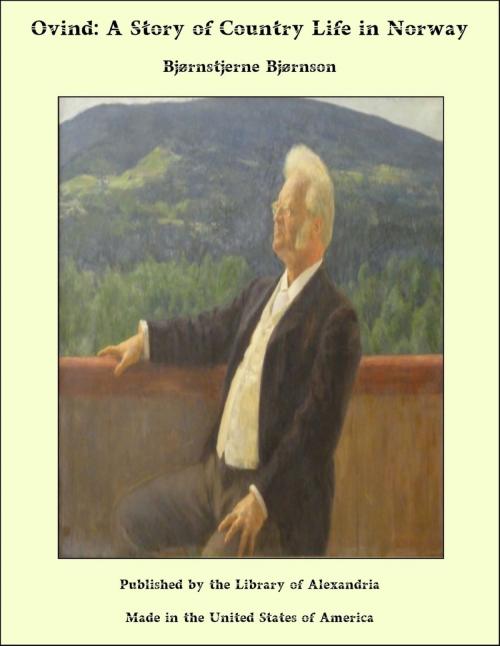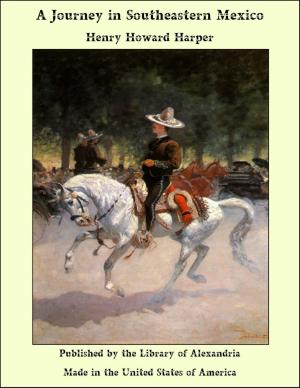Ovind: A Story of Country Life in Norway
Nonfiction, Religion & Spirituality, New Age, History, Fiction & Literature| Author: | Bjørnstjerne Bjørnson | ISBN: | 9781465607157 |
| Publisher: | Library of Alexandria | Publication: | March 8, 2015 |
| Imprint: | Language: | English |
| Author: | Bjørnstjerne Bjørnson |
| ISBN: | 9781465607157 |
| Publisher: | Library of Alexandria |
| Publication: | March 8, 2015 |
| Imprint: | |
| Language: | English |
Ovind grew, and became a promising lad. At school he was always among the first, and at home he was industrious, for at home he loved his mother and at school the schoolmaster. He did not see much of his father, who was either away fishing or else attending to the mill. That which at this time had the most influence over his mind, was the history of the schoolmaster, which his mother told him one night as they sat over the log fire. It entered his books, it peeped out of every word the schoolmaster said, and crept stealthily round the school-room when all was still. It made him obedient and respectful, and, as it were, enlarged the powers of his mind. The story ran thus:--The schoolmaster's name was Baard, and he had one only brother called Anders. They were much attached to each other, they enlisted together, served in the same company, were together in the war, and were both made corporals; and, when after the war they returned home, they were looked upon by everybody as two brave fellows. Soon after this their father died, leaving a good deal of property not easy to divide. To overcome the difficulty, they resolved to have an auction sale, when they could share the profits, and each could buy those things he liked best. Now the father had left a large gold watch, known through all the country side, for it was the only gold watch the people there had ever seen. When this watch was put up at the sale there were many bids, until both the brothers began, and then others ceased. Now Baard expected that Anders would let him have the watch, and Anders thought the same of Baard. When the watch had come up to twenty dollars, Baard thought it wasn't nice of his younger brother, and he bid again until it was near thirty, but Anders would not give in. Then Baard said forty dollars at one bid, and looked no longer at his brother. There was a deep silence in the room, broken only by the auctioneer quietly naming the last bid. Anders thought that if Baard could afford to pay forty dollars, he could do it equally as well, and if Baard would not let him have the watch, he should pay dearly for it, so he bid higher. Then Baard laughed--"A hundred dollars and my brotherhood into the bargain," he said, and went out. A moment after, as he saddled his horse, one came out and said to him, "The watch is yours; Anders gave in." As he heard this, a deep pang shot through him,--he thought of his brother and not of the watch. The horse was saddled, but he seemed uncertain whether to ride or not. Just then many of the people came out, and Anders among them, who, seeing Baard with his horse ready saddled and little dreaming of his real thoughts.
Ovind grew, and became a promising lad. At school he was always among the first, and at home he was industrious, for at home he loved his mother and at school the schoolmaster. He did not see much of his father, who was either away fishing or else attending to the mill. That which at this time had the most influence over his mind, was the history of the schoolmaster, which his mother told him one night as they sat over the log fire. It entered his books, it peeped out of every word the schoolmaster said, and crept stealthily round the school-room when all was still. It made him obedient and respectful, and, as it were, enlarged the powers of his mind. The story ran thus:--The schoolmaster's name was Baard, and he had one only brother called Anders. They were much attached to each other, they enlisted together, served in the same company, were together in the war, and were both made corporals; and, when after the war they returned home, they were looked upon by everybody as two brave fellows. Soon after this their father died, leaving a good deal of property not easy to divide. To overcome the difficulty, they resolved to have an auction sale, when they could share the profits, and each could buy those things he liked best. Now the father had left a large gold watch, known through all the country side, for it was the only gold watch the people there had ever seen. When this watch was put up at the sale there were many bids, until both the brothers began, and then others ceased. Now Baard expected that Anders would let him have the watch, and Anders thought the same of Baard. When the watch had come up to twenty dollars, Baard thought it wasn't nice of his younger brother, and he bid again until it was near thirty, but Anders would not give in. Then Baard said forty dollars at one bid, and looked no longer at his brother. There was a deep silence in the room, broken only by the auctioneer quietly naming the last bid. Anders thought that if Baard could afford to pay forty dollars, he could do it equally as well, and if Baard would not let him have the watch, he should pay dearly for it, so he bid higher. Then Baard laughed--"A hundred dollars and my brotherhood into the bargain," he said, and went out. A moment after, as he saddled his horse, one came out and said to him, "The watch is yours; Anders gave in." As he heard this, a deep pang shot through him,--he thought of his brother and not of the watch. The horse was saddled, but he seemed uncertain whether to ride or not. Just then many of the people came out, and Anders among them, who, seeing Baard with his horse ready saddled and little dreaming of his real thoughts.















